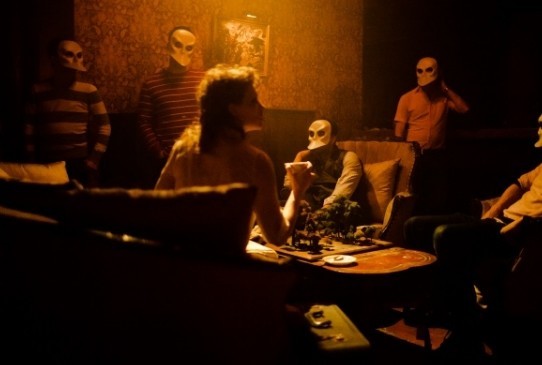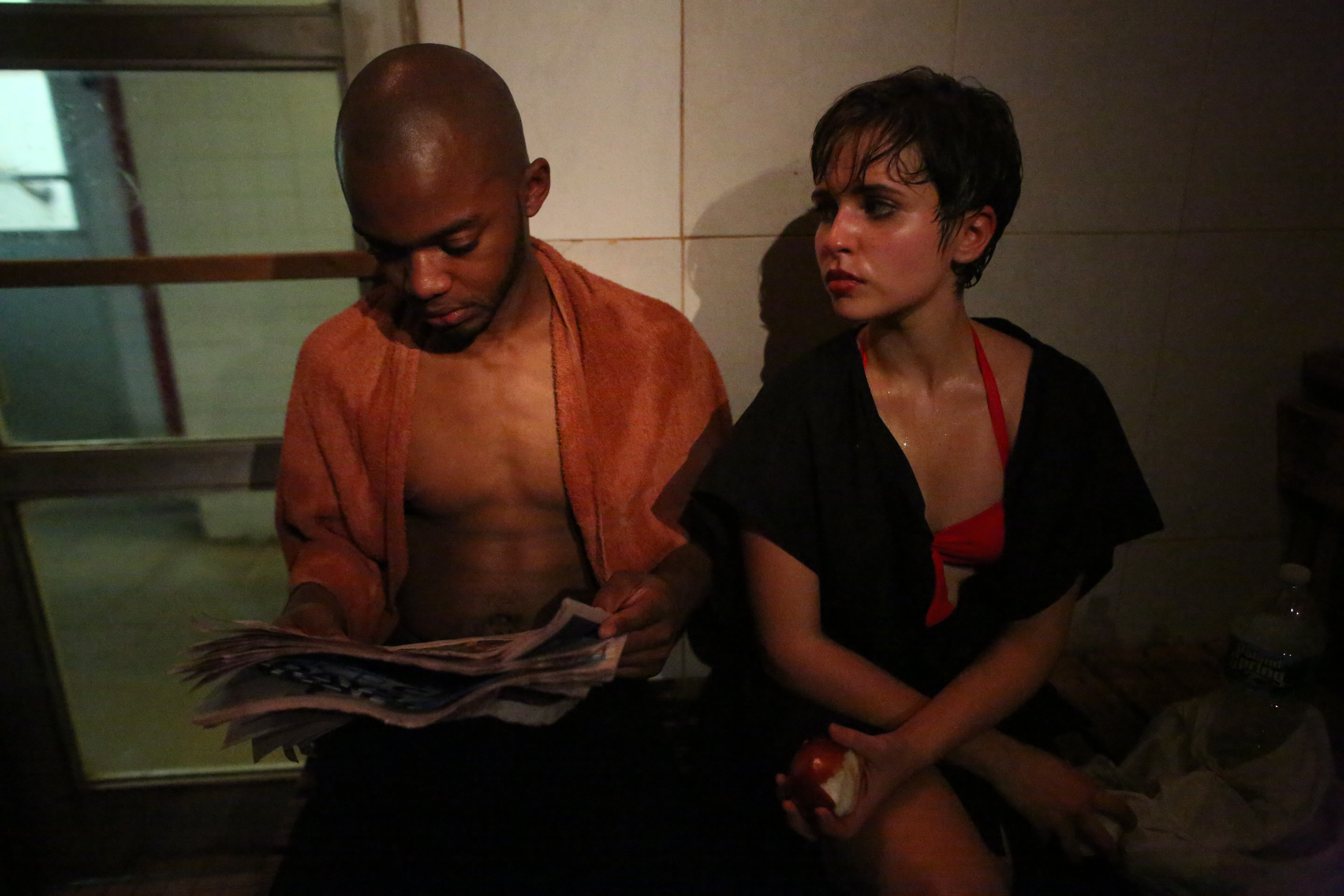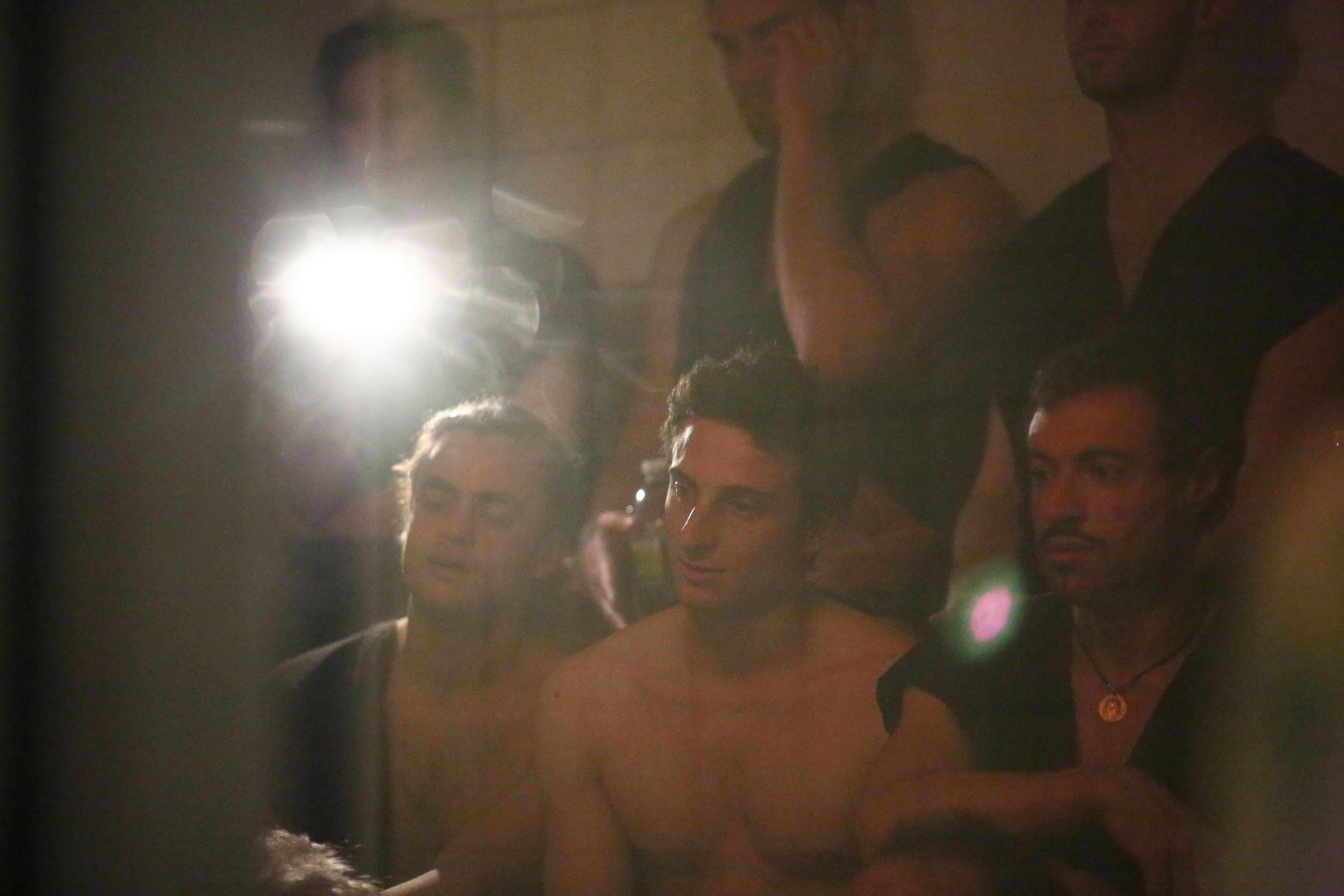
This spring, the British theater critic Alice Jones diagnosed herself.
She's a sufferer of “Site Specific Angst -- that woozy, stomach-clenching feeling you get when you embark on a show and you have no idea what is going on, what your part in it is supposed to be, where you should put your coat and when it will end.”
Herein lies the danger of watching too much immersive theater. We're all susceptible now. The genre is exploding, with more and more productions staged in hospitals and back alleys, and more audiences asked to perform as much as the performers.

At Sleep No More, a popular immersive theater experience in Chelsea, audience members wear masks as they traipse through a warehouse converted into an eerie fictional hotel.
In England, the birthplace of the phenomenon, the backlash is starting. “What, on initial encounters, felt like an exciting, experimental trend can start to feel predictable and hackneyed,” wrote Charlotte Higgins recently, reviewing a play that required she be blindfolded. So typical was the gimmick that the Guardian writer found herself not "haunted" (it was hyped as a scary production), but “bored."
Americans should take heed. This summer, Playbill counted nine immersive shows of note in New York City, including a production of Alice In Wonderland staged in an actual mental ward. Jones may as well write this one off now: “Visitors may find themselves brushing Alice's hair and discussing first loves with her," promises the roundup.
It's not only audiences who should be wary of overkill. Theater companies have something to lose too. Look no further than “Sleep No More,” the granddaddy of transatlantic immersive sensations. When the British import opened in a converted Chelsea warehouse dubbed the McKittrick Hotel in 2011, there was at least some mystery to the mythology drummed up by Punchdrunk, the company at the helm, of a century-old, ghost-infested hotel, reopened for service.
Any verisimilitude is now long gone. Coming up on its fourth year in Manhattan, the production, ostensibly an adaptation of Macbeth, is more tourist attraction than dramatic revelation. Corporations can rent out the set for private parties. One blogger, reviewing the show this year, penned the unlikely line: “I had already been to the McKittrick Hotel for a rather cool business school party.”
How to get your audience to suspend disbelief, then, when you're peddling the sort of show people may grow weary of before they've even arrived?
Alex Ernst, the assistant director of “Dutchman,” a play staged for this year’s Performa Festival in the Russian and Turkish Baths of the East Village, says the key is knowing when to stop.
“Dutchman” was written in 1964 by the African American poet LeRoi Jones (later known as Amiri Baraka). The action is intense, static and racially-charged: a white woman propositions a black man in increasingly needling ways, sitting beside him on a train.

Actors Kevyn States and Tori Ernst perform "Dutchman," at the Russian and Turkish Baths. Photo by Paula Court, courtesy Performa.
Restaging the play in the stifling heat of the saunas made sense dramatically, Ernst said. Spectators followed the actors from room to room, and of three contiguous sets, the last was the hottest of all. As the drama intensified, so did the experience of watching it. Meanwhile, anyone who knows the voyeurism of riding on a train will appreciate how well the stadium seating of a sauna approximates that effect. By the end, the proximity is almost claustrophobic.

A crowd at "Dutchman" sweats it out while they watch the show. Photo by Paula Court, courtesy Performa.
Throughout, audience members, dressed in bathing suits and the brown robes standard to the place, were encouraged to douse themselves with water (jumbo-sized bottles were provided). Volunteers cooled the final room as much as they could before performances, using a built-in vacuum system and flapping towels to fan out the air. The idea was to push the crowd into a state that enhanced their collective experience without overwhelming them -- a nobler proposition, one could argue, than orchestrating individual jaunts through a Shakespeare-themed haunted house.
That's not to say people weren't drawn to "The Dutchman" because of its concept. The play enjoyed a sold-out run, despite mixed reviews of the actual acting.
But Ernst and Rashid Johnson, the play’s director, aren't looking to create the city's next attraction. While a tour of the nation's bathhouses is on the table -- Ernst said Chicago, Johnson’s hometown, would be the first stop -- "Dutchman" won't be putting down roots anywhere.
“Sometimes it’s important that things are not accessible to everyone,” Ernst told HuffPost. “People keep talking about it, and it lives on as legend.”
Plus, she added, “the bathhouse is probably ready to kill us right now.”
This story appears in Issue 79 of our weekly iPad magazine, Huffington, available Friday, Dec. 13in the iTunes App store.
